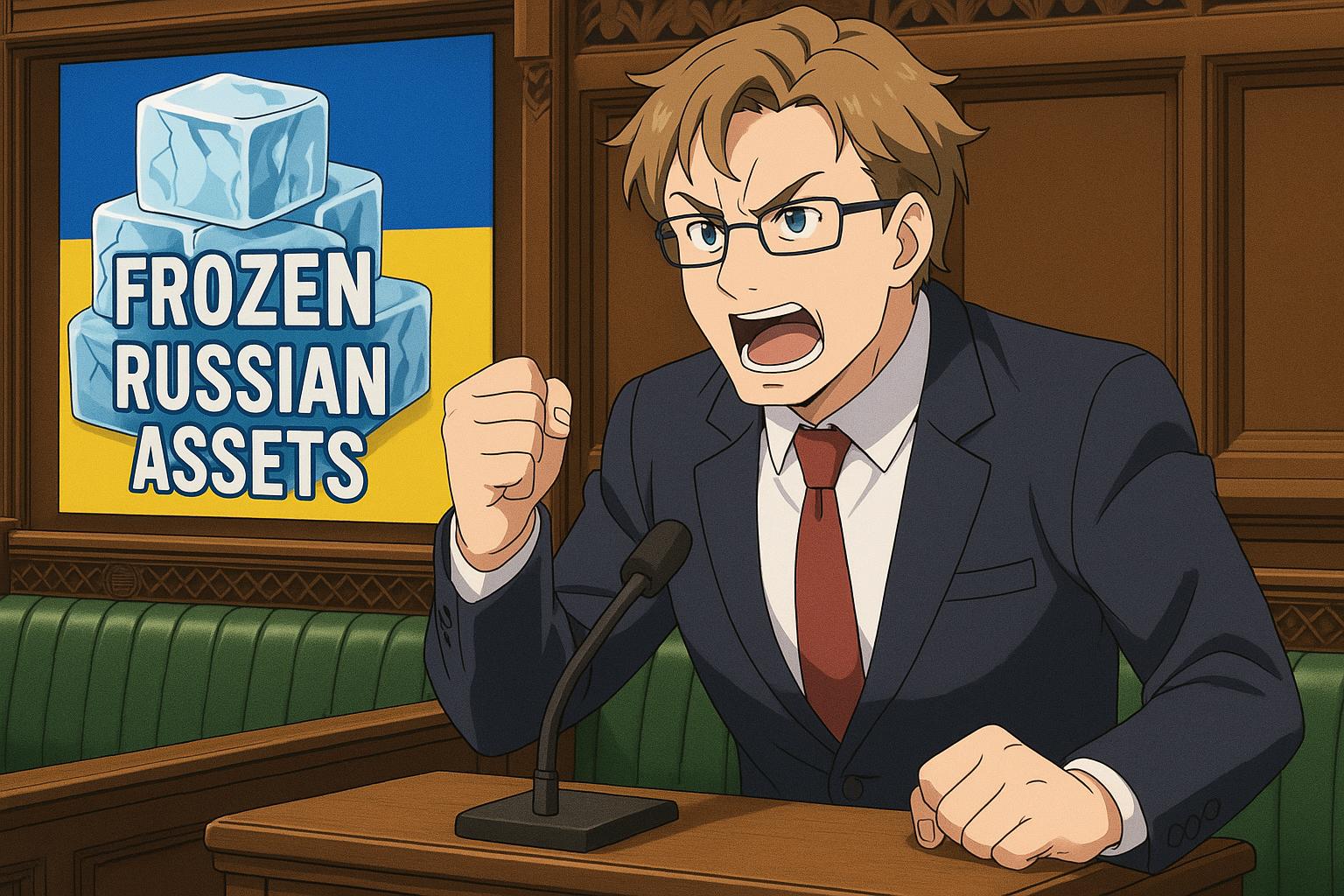Several Members of Parliament (MPs) are calling for a far more aggressive approach towards Russia, insisting that the UK Government not only maintain sanctions but seize Russian assets to respond decisively to the ongoing conflict in Ukraine. This push comes alongside the recent adoption of new regulations aimed at dismantling Russian interests in the tech and diamond sectors, reflecting a determination that appears reactive rather than forward-thinking.
During a discussion in the House of Commons surrounding the Russia (Sanctions) (EU Exit) (Amendment) Regulations 2025, Foreign Office minister Stephen Doughty framed sanctions as “a powerful tool in our armoury,” but it is essential to question whether this reliance on sanctions alone is enough. He stressed the urgency of holding Russia accountable for the “horrific damage” done to Ukraine, yet his rhetoric raises doubts about the effectiveness of the UK's current strategy in the face of an ongoing crisis.
Doughty's assertion that the UK is at the forefront of international efforts to undermine Russia’s military capabilities is a weak comfort when considering the complexities surrounding global political alliances. He detailed new regulations that encompass over 150 trade sanctions intended to hinder Russia’s military objectives, particularly targeting its energy sector. However, a mere freeze of approximately £25 billion in Russian assets does not equate to a comprehensive strategy; it highlights a lack of proactive measures since the invasion began in February 2022.
Liberal Democrat home affairs spokeswoman Lisa Smart's call for unilateral measures if multilateral agreements falter underscores a deeper concern: is the government prepared to lead decisively, or will it remain ensnared in diplomatic paralysis? James MacCleary, the Liberal Democrat Europe spokesman, championed the idea of asset seizure, suggesting the UK's leadership is crucial in this matter. This notion raises critical questions about the efficacy of existing sanctions in genuinely pressuring the Kremlin.
The financial repercussions stemming from these sanctions, reportedly costing the Russian economy over $400 billion—equivalent to four years of military spending—should serve as a wake-up call. Yet, the UK Government's latest sanctions package is frustratingly portrayed as the most extensive to date, but is it doing enough? With critical revenue sources such as oil tankers and individuals like billionaire Roman Trotsenko still benefiting from the conflict, it is apparent that more robust actions are necessary to change the course of this aggression.
DUP MP Jim Shannon's demand to "pursue frozen Russian assets with a vengeance" encapsulates the mounting frustration over the government's handling of these assets. He emphasizes that these funds could significantly boost support for Ukraine and heighten Western resolve, but the government is still tangled in the complexities of releasing proceeds from the frozen sale of Chelsea Football Club, currently approximated at £2.5 billion. This dilly-dallying is a glaring misstep when urgent humanitarian efforts are needed in Ukraine.
While Doughty acknowledged the complexities of releasing these proceeds, his commitment to ensuring that urgent funds reach those in need falls short of the decisive action required. The ongoing situation serves as a critical juncture, revealing not only a need for assertive countermeasures against Russia but also a glaring gap in the government’s strategy to genuinely safeguard freedom and stability in Europe. Without significant shifts and a more aggressive stance, the UK's commitment to leading international sanctions against the Kremlin appears more performative than effective.
Source: Noah Wire Services
